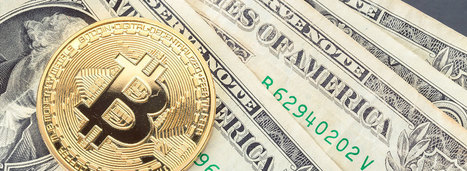The latest news in the Bitcoin space is one that has been in the making for four years: the Winklevoss’ twins Bitcoin ETF will soon be accepted, or rejected, by the Securities and Exchange Commission (the SEC). This decision will leave ripples in Bitcoin’s history, and it’s the first step to legitimizing Bitcoin’s acceptance with the general public.
But first, let’s look at what an ETF is, and why they’re so important.
Mutual and Exchange-Traded Funds
Funds are important – it’s a building block towards a particular purpose. The most common type of fund – a retirement fund – is a sum of money for after we’ve entered retirement, allowing us to live comfortably in our older years.
There are many kinds of funds, but the two main ones are mutual funds, and exchange-traded funds.
In a mutual fund, you’re sitting around, trying to figure out the best way to invest in the stock market. Your friends are, too. Sure, you could go out and buy a few stocks each, but you don’t really have the time – or the resources – to manage a diverse portfolio of 50, to 100 stocks. You can’t keep up on the news of when to buy and sell; you don’t know all the different buying and selling strategies, and you don’t have a lot of time to learn. So, what do you do?
You and your friends decide to band together, and pool all of your money you’d have spent individually on stocks into a professional investment manager instead. This manager is going to do all the hard work, for a little share of the profit.
To keep track of who has invested what (you might have invested one-thousand dollars, but Bobby next door only invested fifty dollars, the stingy bastard), you and each of your friends receive a share – a little token, representing your stake in the total investment. The more tokens you have, the more you’ve invested.
You still want to know what your money is doing, though, and you want dailyupdates. So every day, you investment manager tallies up the value of everything it owns, and divides it by the number of shares that exist. Now, you know exactly what each share is worth. If you want to buy more shares, you’re going to know the exact amount of cash to send your investment manager; if you want to sell shares, you’re going to know the exact amount of cash to expect in return. It’s a rather elegant system, and can be used for all sorts of things – stocks, bonds, commodities, and other assets.
And then, there’s exchange-traded funds – or ETF’s, for short.
An ETF is a type of mutual fund, too, except for one big change. A mutual fund is traded at the end of the day, all at once; an ETF can be traded through the day, like a stock. A mutual fund is steady, and prevents the market from fluctuating at certain hours; an ETF does the opposite, just like a stock, allowing you to potentially make it big if you’re lucky, or clever. Buy shares in the morning, sell them after lunch, buy them again before the sun sets – there’s no limit.
You’ll also be able to perform all sorts of stock-like strategies that you can’t perform with a mutual fund – things like selling short; placing a stop-loss; placing a limit order; or buying on-margin.
In short, an ETF is a powerful tool with the potential for great risk, but even greater reward. But it’s also simple, transparent, tax efficient, and well structured, and you can access it through any brokerage account.



 Your new post is loading...
Your new post is loading...









Worlds Biggest ICO has just been canceled, with $1,7 Bn needing to be (partially) refunded